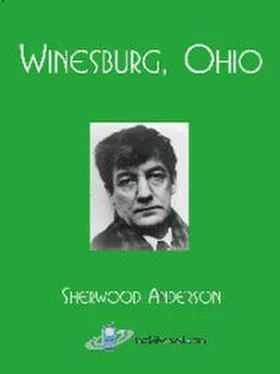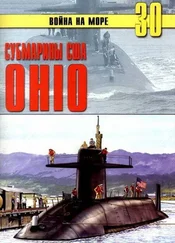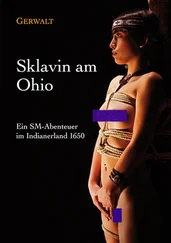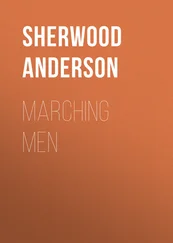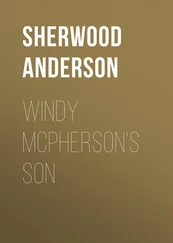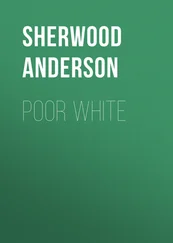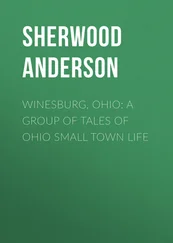Sherwood Anderson - Winesburg, Ohio
Здесь есть возможность читать онлайн «Sherwood Anderson - Winesburg, Ohio» весь текст электронной книги совершенно бесплатно (целиком полную версию без сокращений). В некоторых случаях можно слушать аудио, скачать через торрент в формате fb2 и присутствует краткое содержание. Жанр: Старинная литература, на английском языке. Описание произведения, (предисловие) а так же отзывы посетителей доступны на портале библиотеки ЛибКат.
- Название:Winesburg, Ohio
- Автор:
- Жанр:
- Год:неизвестен
- ISBN:нет данных
- Рейтинг книги:3 / 5. Голосов: 1
-
Избранное:Добавить в избранное
- Отзывы:
-
Ваша оценка:
- 60
- 1
- 2
- 3
- 4
- 5
Winesburg, Ohio: краткое содержание, описание и аннотация
Предлагаем к чтению аннотацию, описание, краткое содержание или предисловие (зависит от того, что написал сам автор книги «Winesburg, Ohio»). Если вы не нашли необходимую информацию о книге — напишите в комментариях, мы постараемся отыскать её.
Winesburg, Ohio — читать онлайн бесплатно полную книгу (весь текст) целиком
Ниже представлен текст книги, разбитый по страницам. Система сохранения места последней прочитанной страницы, позволяет с удобством читать онлайн бесплатно книгу «Winesburg, Ohio», без необходимости каждый раз заново искать на чём Вы остановились. Поставьте закладку, и сможете в любой момент перейти на страницу, на которой закончили чтение.
Интервал:
Закладка:
Virginia Richmond could not understand why her son did not do these things. After the severest reprimand, he did not tremble and look at the floor but instead looked steadily at her, causing uneasy doubts to invade her mind. As for creeping into his room-after Seth had passed his fifteenth year, she would have been half afraid to do anything of the kind.
Once when he was a boy of sixteen, Seth in company with two other boys ran away from home. The three boys climbed into the open door of an empty freight car and rode some forty miles to a town where a fair was being held. One of the boys had a bottle filled with a combination of whiskey and blackberry wine, and the three sat with legs dangling out of the car door drinking from the bottle. Seth's two companions sang and waved their hands to idlers about the stations of the towns through which the train passed. They planned raids upon the baskets of farmers who had come with their families to the fair. "We will five like kings and won't have to spend a penny to see the fair and horse races," they declared boastfully.
After the disappearance of Seth, Virginia Richmond walked up and down the floor of her home filled with vague alarms. Although on the next day she discovered, through an inquiry made by the town marshal, on what adventure the boys had gone, she could not quiet herself. All through the night she lay awake hearing the clock tick and telling herself that Seth, like his father, would come to a sudden and violent end. So determined was she that the boy should this time feel the weight of her wrath that, although she would not allow the marshal to interfere with his adventure, she got out a pencil and paper and wrote down a series of sharp, stinging reproofs she intended to pour out upon him. The reproofs she committed to memory, going about the garden and saying them aloud like an actor memorizing his part.
And when, at the end of the week, Seth returned, a little weary and with coal soot in his ears and about his eyes, she again found herself unable to reprove him. Walking into the house he hung his cap on a nail by the kitchen door and stood looking steadily at her. "I wanted to turn back within an hour after we had started," he explained. "I didn't know what to do. I knew you would be bothered, but I knew also that if I didn't go on I would be ashamed of myself. I went through with the thing for my own good. It was uncomfortable, sleeping on wet straw, and two drunken Negr—s came and slept with us. When I stole a lunch basket out of a farmer's wagon I couldn't help thinking of his children going all day without food. I was sick of the whole affair, but I was determined to stick it out until the other boys were ready to come back."
"I'm glad you did stick it out," replied the mother, half resentfully, and kissing him upon the forehead pretended to busy herself with the work about the house.
On a summer evening Seth Richmond went to the New Willard House to visit his friend, George Willard. It had rained during the afternoon, but as he walked through Main Street, the sky had partially cleared and a golden glow lit up the west. Going around a corner, he turned in at the door of the hotel and began to climb the stairway leading up to his friend's room. In the hotel office the proprietor and two traveling men were engaged in a discussion of politics.
On the stairway Seth stopped and listened to the voices of the men below. They were excited and talked rapidly. Tom Willard was berating the traveling men. "I am a Democrat but your talk makes me sick," he said. "You don't understand McKinley. McKinley and Mark Hanna are friends. It is impossible perhaps for your mind to grasp that. If anyone tells you that a friendship can be deeper and bigger and more worth while than dollars and cents, or even more worth while than state politics, you snicker and laugh."
The landlord was interrupted by one of the guests, a tall, grey-mustached man who worked for a wholesale grocery house. "Do you think that I've lived in Cleveland all these years without knowing Mark Hanna?" he demanded. "Your talk is piffle. Hanna is after money and nothing else. This McKinley is his tool. He has McKinley bluffed and don't you forget it."
The young man on the stairs did not linger to hear the rest of the discussion, but went on up the stairway and into the little dark hall. Something in the voices of the men talking in the hotel office started a chain of thoughts in his mind. He was lonely and had begun to think that loneliness was a part of his character, something that would always stay with him. Stepping into a side hall he stood by a window that looked into an alleyway. At the back of his shop stood Abner Groff, the town baker. His tiny bloodshot eyes looked up and down the alleyway. In his shop someone called the baker, who pretended not to hear. The baker had an empty milk bottle in his hand and an angry sullen look in his eyes.
In Winesburg, Seth Richmond was called the "deep one." "He's like his father," men said as he went through the streets. "He'll break out some of these days. You wait and see."
The talk of the town and the respect with which men and boys instinctively greeted him, as all men greet silent people, had affected Seth Richmond's outlook on life and on himself. He, like most boys, was deeper than boys are given credit for being, but he was not what the men of the town, and even his mother, thought him to be. No great underlying purpose lay back of his habitual silence, and he had no definite plan for his life. When the boys with whom he associated were noisy and quarrelsome, he stood quietly at one side. With calm eyes he watched the gesticulating lively figures of his companions. He wasn't particularly interested in what was going on, and sometimes wondered if he would ever be particularly interested in anything. Now, as he stood in the half-darkness by the window watching the baker, he wished that he himself might become thoroughly stirred by something, even by the fits of sullen anger for which Baker Groff was noted. "It would be better for me if I could become excited and wrangle about politics like windy old Tom Willard," he thought, as he left the window and went again along the hallway to the room occupied by his friend, George Willard.
George Willard was older than Seth Richmond, but in the rather odd friendship between the two, it was he who was forever courting and the younger boy who was being courted. The paper on which George worked had one policy. It strove to mention by name in each issue, as many as possible of the inhabitants of the village. Like an excited dog, George Willard ran here and there, noting on his pad of paper who had gone on business to the county seat or had returned from a visit to a neighboring village. All day he wrote little facts upon the pad. "A. P. Wringlet had received a shipment of straw hats. Ed Byerbaum and Tom Marshall were in Cleveland Friday. Uncle Tom Sinnings is building a new barn on his place on the Valley Road."
The idea that George Willard would some day become a writer had given him a place of distinction in Winesburg, and to Seth Richmond he talked continually of the matter, "It's the easiest of all lives to live," he declared, becoming excited and boastful. "Here and there you go and there is no one to boss you. Though you are in India or in the South Seas in a boat, you have but to write and there you are. Wait till I get my name up and then see what fun I shall have."
In George Willard's room, which had a window looking down into an alleyway and one that looked across railroad tracks to Biff Carter's Lunch Room facing the railroad station, Seth Richmond sat in a chair and looked at the floor. George Willard, who had been sitting for an hour idly playing with a lead pencil, greeted him effusively. "I've been trying to write a love story," he explained, laughing nervously. Lighting a pipe he began walking up and down the room. "I know what I'm going to do. I'm going to fall in love. I've been sitting here and thinking it over and I'm going to do it."
Читать дальшеИнтервал:
Закладка:
Похожие книги на «Winesburg, Ohio»
Представляем Вашему вниманию похожие книги на «Winesburg, Ohio» списком для выбора. Мы отобрали схожую по названию и смыслу литературу в надежде предоставить читателям больше вариантов отыскать новые, интересные, ещё непрочитанные произведения.
Обсуждение, отзывы о книге «Winesburg, Ohio» и просто собственные мнения читателей. Оставьте ваши комментарии, напишите, что Вы думаете о произведении, его смысле или главных героях. Укажите что конкретно понравилось, а что нет, и почему Вы так считаете.
